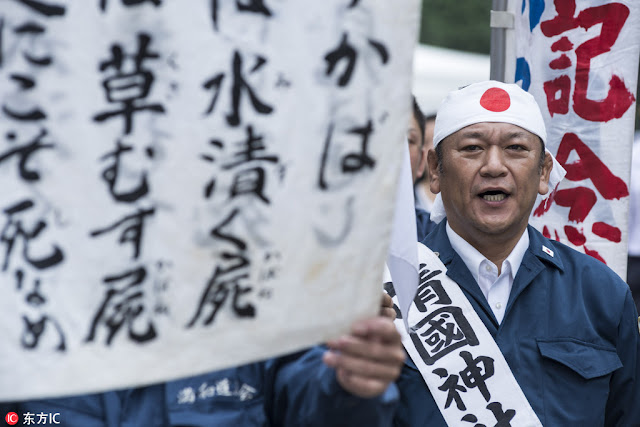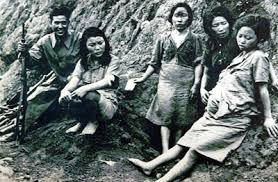A call from a Beijing-based Chinese journalist friend came suggesting I should make a quick trip to Hainan, China’s southernmost island province, to watch a rocket launch.
“Hainan is just a few hours away from Kuala Lumpur, so here’s your chance to see a real rocket blast. You don’t have to travel all the way to the United States or Russia to see this,’’ he said.
The only problem was that he could not give me the exact date of the lift off as he couldn’t find the details. He apologised and said that the Chinese authorities were often secretive of such information and that the best way to find out was to call up the hotels by the beach, facing the Wenchang space launch site.
When I approached my local travel agent, she was of no help as she had no idea there were rocket ascents in Hainan, but she did promise to call her Hainan counterpart.
A few days later, the agent called back to say that most of the launch crew had made bookings for a week at the Hilton Wenchang.
“It is most likely that during that one week, the rocket would be launched. You just have to take your chances,’’ the agent said.
Now, there was no way I could book a room there for a week, as the rates had gone up by quite a bit during that period, so an urgent call was made to Beijing again.
More calls and WeChat messages were exchanged and soon, it was narrowed down to three possible dates, with the launch time likely to be at 8.30pm.
That seemed reasonable as I would be able to explore Hainan – dubbed the “Hawaii of China” as it is well-known for its palm-fringed beaches, coconut groves, and luxury resorts – during the day and be back at the hotel in the evenings.
Hainan has long been a destination for vacationers seeking sun, sea, and serenity with its white sand coastlines and subtropical forests.
But unknown to the world, except in China, Hainan is actually fast gaining a reputation as a world-class spaceport, with space tourism as one of its main products.
My wife and I arrived in Hainan via AirAsia, which flies direct from KLIA Terminal 2, hoping to see the countdowns and launch pads.
“You must get a balcony room with a beach view, and just watch the awesome sights and sounds from the room. It will be the best view. That way, you don’t have to jostle with the crowds who will gather at the public beach,’’ my reporter friend reminded me.
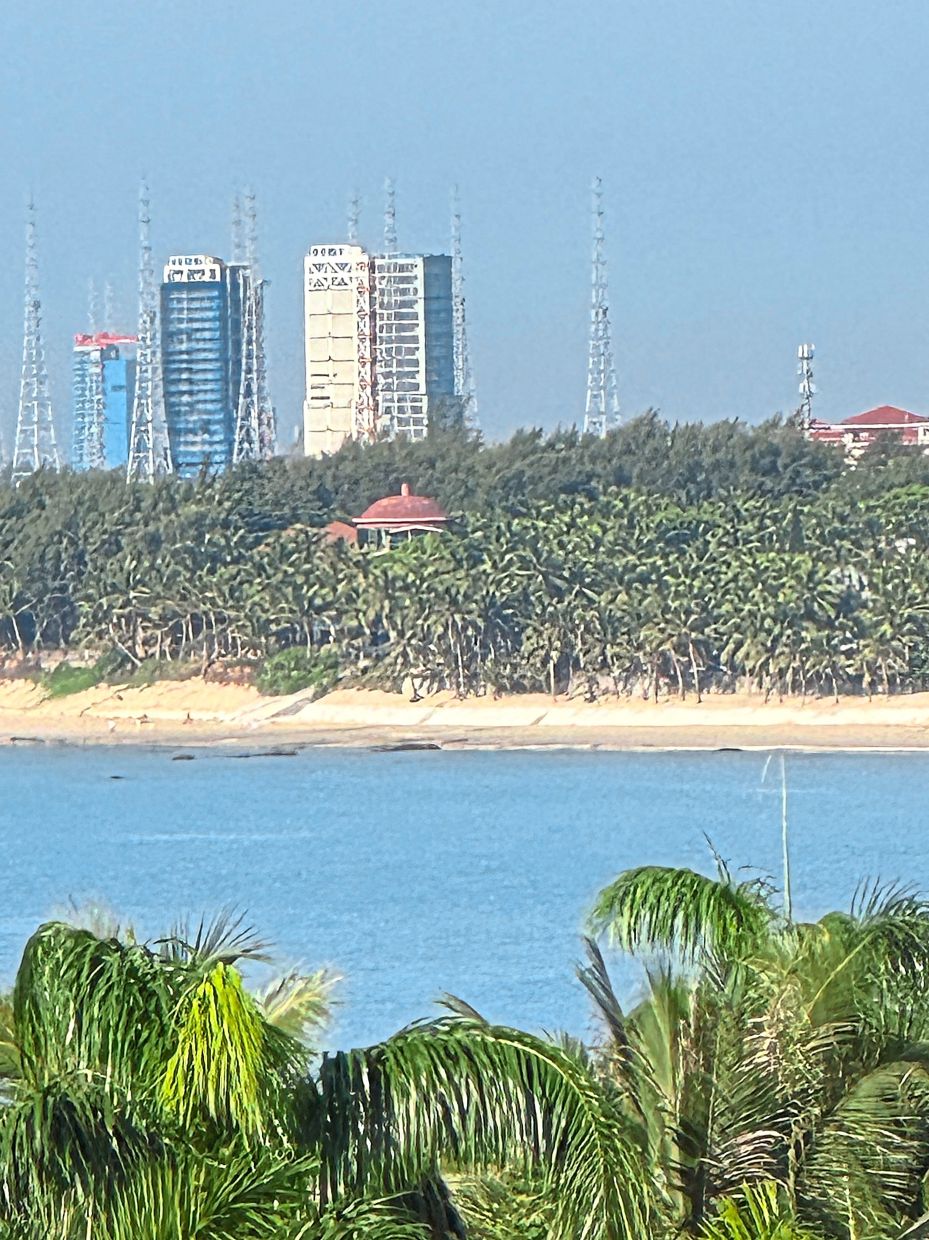 White beaches, palm trees and the rocket launch pad. A perfect view from the balcony of Wenchang Hilton in Hainan, China.
White beaches, palm trees and the rocket launch pad. A perfect view from the balcony of Wenchang Hilton in Hainan, China.
To ensure my dates were when the launch was “most likely to happen”, he doubled-checked with his colleagues in the Hainan bureau, and they assured him that it was on and that “it will happen”.
The Wenchang Space Launch Centre, operational since 2016, is the only coastal launch site in China. Most launches take place in desert sites.
The Hainan location allows for the launch of the country’s largest and heaviest rockets – like the Long March 5, which carries modules for China’s Tiangong Space Station and deep-space missions to the Moon and Mars.
Unlike many space facilities around the world, Wenchang’s launch pads are remarkably accessible.
There’s a public beach that’s just a short walk away from the main launch site, where curious onlookers and local families gather to watch the countdowns, to hear the engines roar to life, and to see the rockets pierce through the sky in dazzling displays.
The anticipated day finally came. Roads were sealed. Only vehicles ferrying registered hotel guests were allowed entry into the hotel area.
Space workers in their uniforms were seen walking around the lobby and restaurants. My wife, who speaks Mandarin, asked if the launch would happen. Their lips were sealed but they sportingly smiled and nodded their heads.
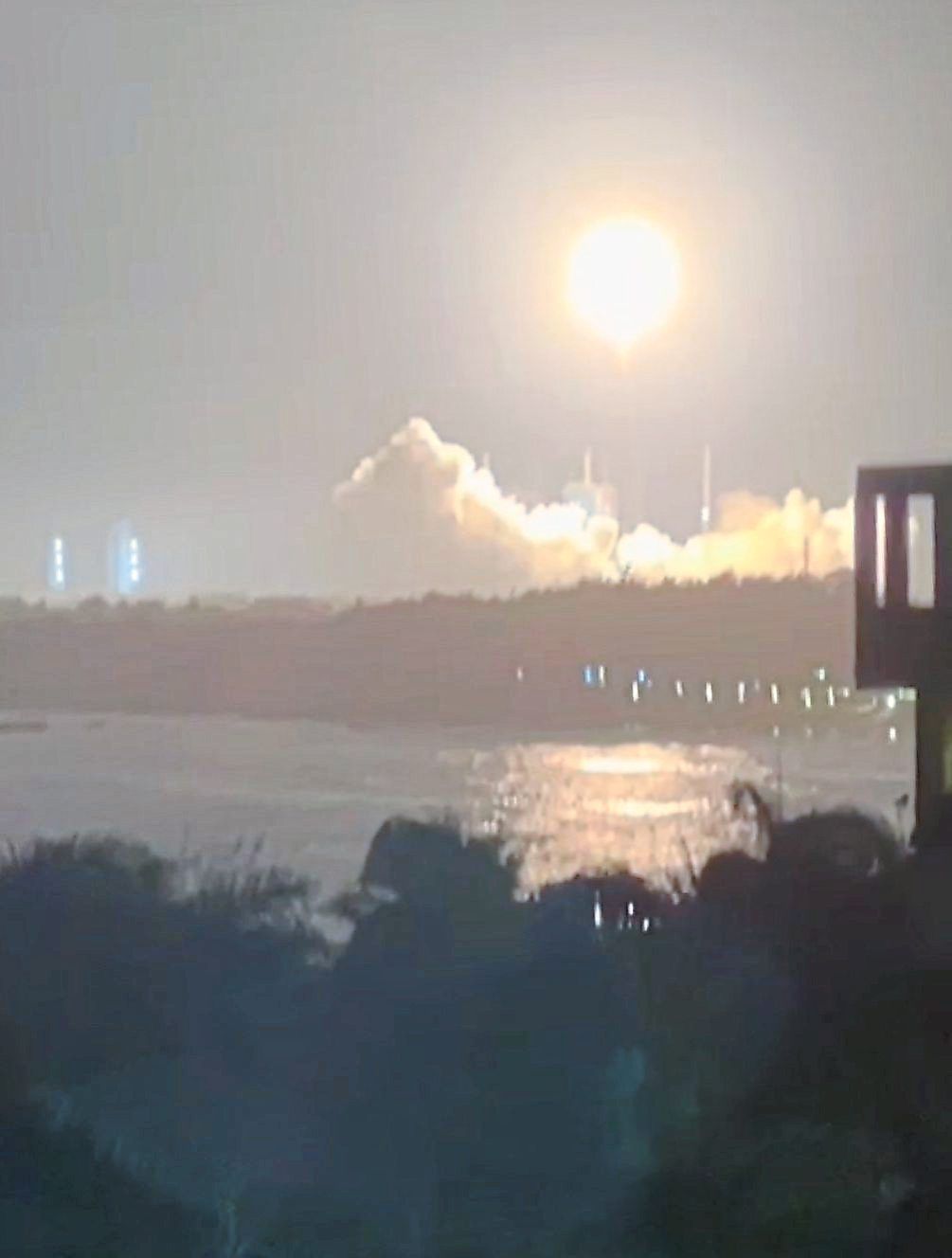 The rocket lift-off event at Wenchang, as seen from the writer’s hotel balcony.
The rocket lift-off event at Wenchang, as seen from the writer’s hotel balcony.
The hotel had set up a counter selling miniature rockets, badges and other souvenirs, which was another sign that the launch was on.
There were rocket models in the lobby, and the afternoon tea served cakes and other sweet treats in the shape of astronauts and spacecrafts, though for a pricey RM200.
By 2pm, locals arrived at the public beach with folding chairs and picnic baskets, turning the shoreline into a festive arena. Children waved flags and tourists scrambled for the best camera angles.
Finally, on Aug 22 at 8.25pm, I looked at the balconies next to our room and saw that they were already filled with guests.
Then, the countdown began. When it hit zero, a thunderous roar filled the air. The rocket lifted slowly at first, then accelerated into the clouds, leaving behind a huge column of fire and a trail of awestruck gasps.
It was loud and hot, yet completely unforgettable. I couldn’t believe how close we were to seeing it all. There was no need for binoculars or distant observation decks.
What I also found unbelievable was that there was only a short mention of the launch on the local TV news channel that evening.
One of the hotel restaurant workers, a local, shrugged at my excitement, saying the rocket launches were mainly satellites by the private sector, and that these take place every few months.
A check online indeed showed three launches this year and many locals were no longer excited about these events, “except for the out-of-town local tourists”. My wife and I were the only foreign guests at the hotel.
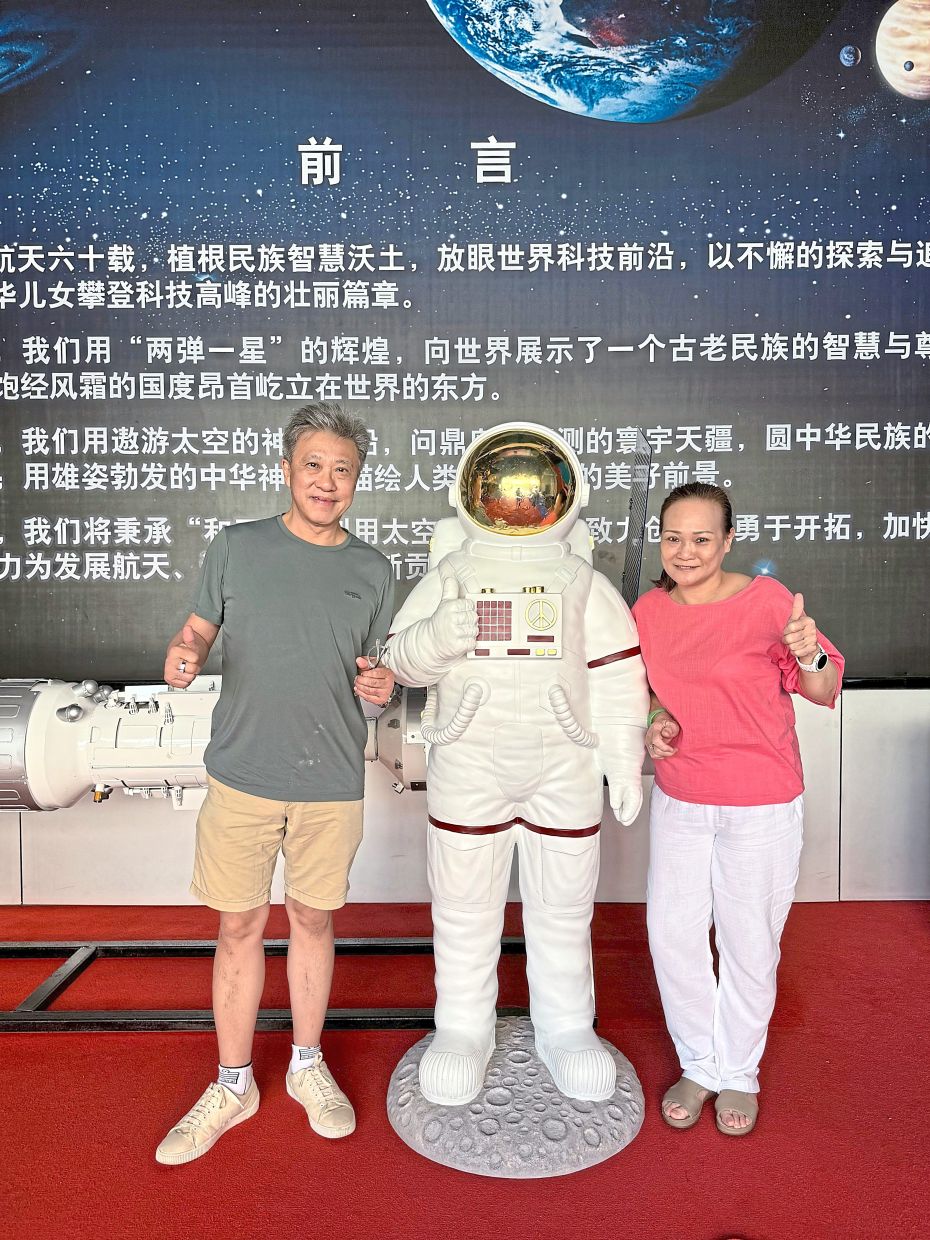 The writer with his wife, Datin Seri Florence Teh at the Aeronautics City in Hainan.
The writer with his wife, Datin Seri Florence Teh at the Aeronautics City in Hainan.
A record was set between July 30 and Aug 4, when “two launches were carried out within five days”, according to reports.
One big attraction that awaits public opening is the Hainan Science Museum, also called the Hainan Science and Technology Museum, in Haikou. Here, there are galleries within the futuristic six-storey building displaying space technology, ocean science, and mathematics, as well as a few interactive zones.
The design of the building resembles an “updraft” (rising warm air current), with fluid, cloud-like shapes, inspired by Hainan’s tropical rainforests and futurism, according to news reports.
But for now, tourists only have the Astronautics City to visit, which is a modest museum but decent enough.
Since we were already in Wenchang, a quiet “rocket town”, we had to try its Wenchang chicken, a dish so famous it inspired the Malaysian favourite, Hainanese chicken rice.
My verdict? Well, we may be light years behind China in terms of rocket science but as a consolation, our Hainanese chicken rice is way, way better!
The steamed chicken in Hainan is tough as they are free-range chickens. They do not have our chilli sauce as a condiment nor do they use thick caramel soy sauce. The steamed chicken is also pretty plain and dry, really.
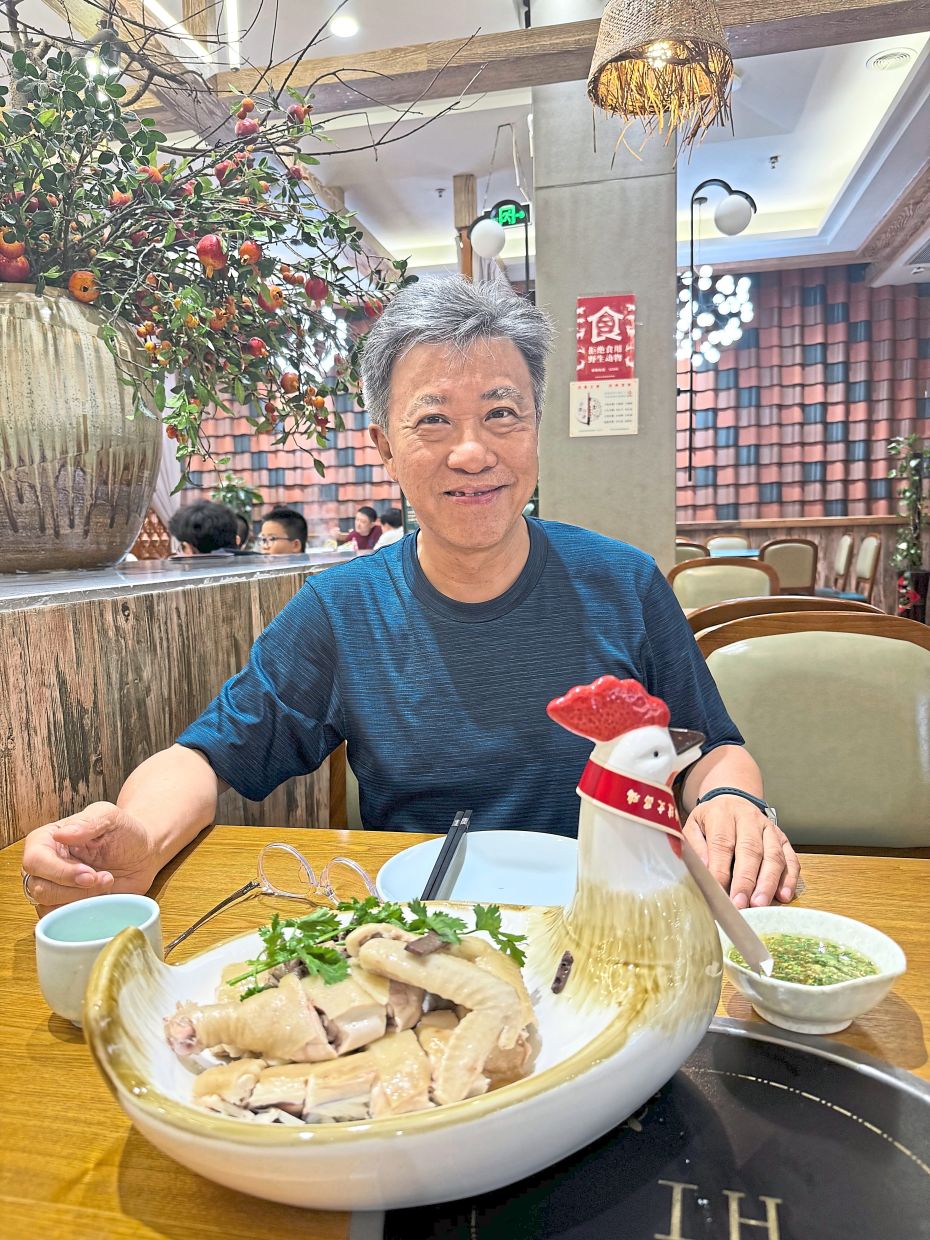 One simply has to try the chicken rice in Hainan as that's where it originated, but the writer still prefers Malaysian chicken rice.
One simply has to try the chicken rice in Hainan as that's where it originated, but the writer still prefers Malaysian chicken rice.
What about durians in Hainan? No, it’s not going to happen for a long, long time as they still rely on imported Thai durians.
Haikou, the capital of Hainan, is also known for its Instagram-friendly colonial-era buildings at Qilou Old Street, reflecting both European and Chinese influences, and restaurants.
Further south, the more well-known resort cities like Sanya offer five-star luxury, snorkelling, and rainforest hikes.
But for Malaysians, all these will not really excite most of us ... but seeing a rocket lift off in front of our eyes is definitely worth experiencing.
Hainan is just a little over three hours by flight from KL and not many realise that the place is geographically the closest Chinese province to Malaysia.
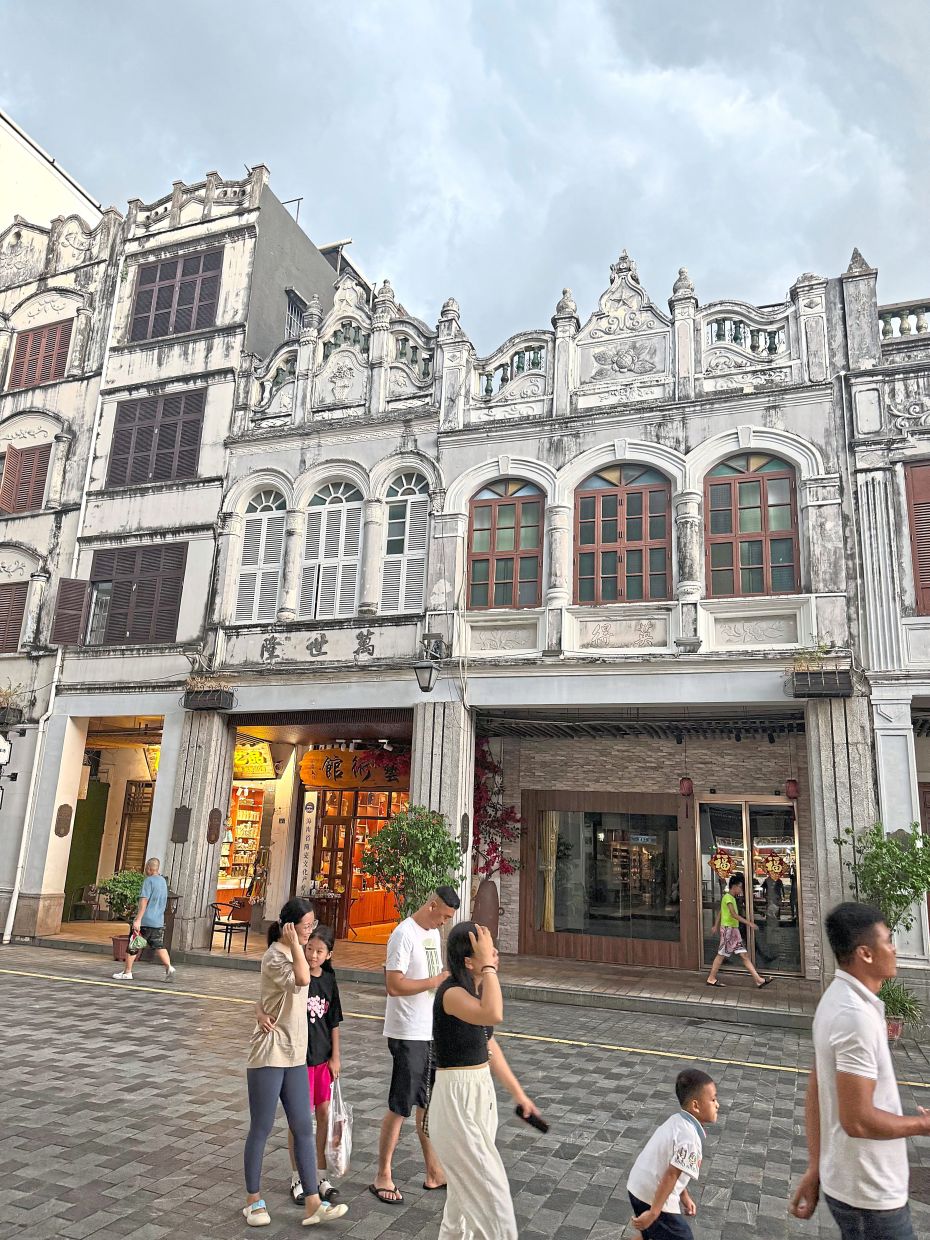 Haikou’s Qilou Old Street is a charming town with colonial-style buildings.
Haikou’s Qilou Old Street is a charming town with colonial-style buildings.

 GT investigates: Unveiling US' long-standing geopolitical, economic and ideological intrigues in Latin America
GT investigates: Unveiling US' long-standing geopolitical, economic and ideological intrigues in Latin America
 Malaysian Prime Minister Anwar Ibrahim during a parade for Malaysian Independence Day celebrations last month in Putrajaya, Malaysia (Syaiful Redzuan/Anadolu via Getty Images
Malaysian Prime Minister Anwar Ibrahim during a parade for Malaysian Independence Day celebrations last month in Putrajaya, Malaysia (Syaiful Redzuan/Anadolu via Getty Images

